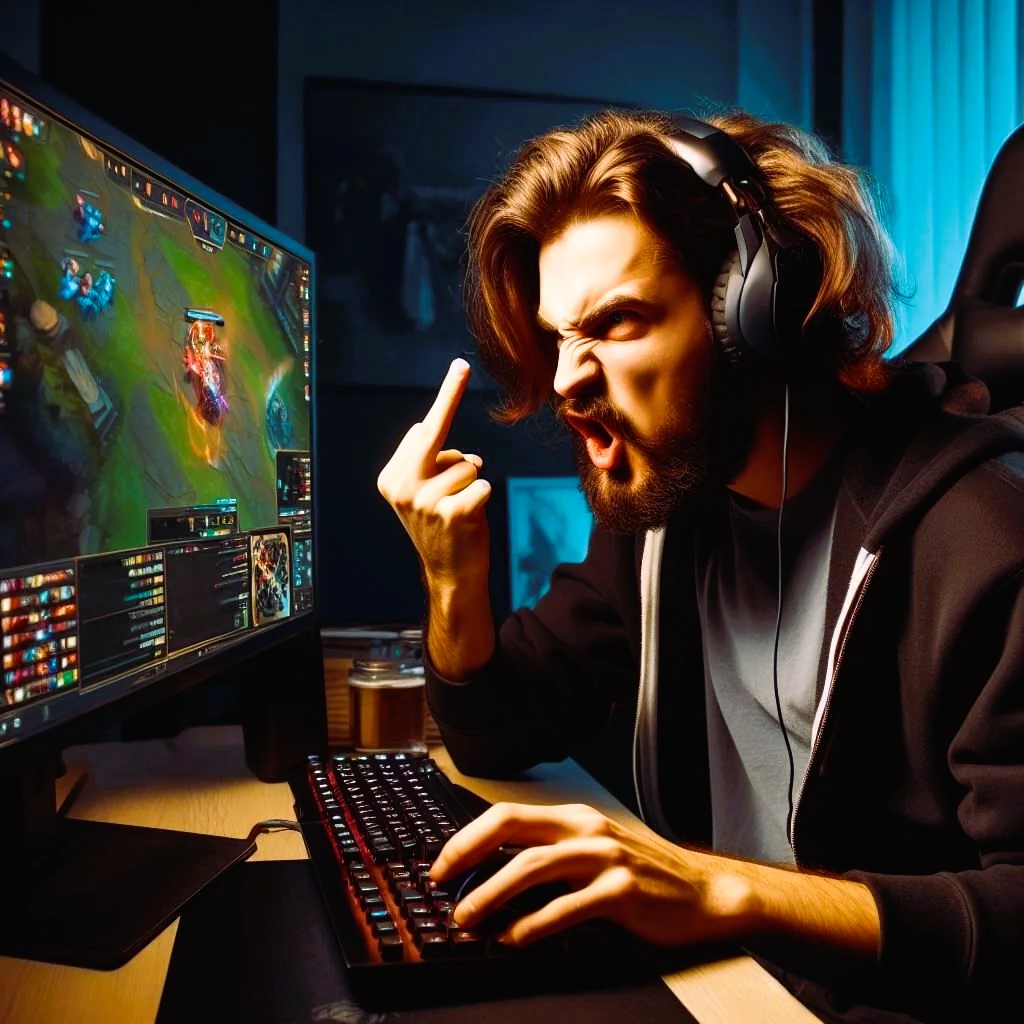Toxicity in online gaming communities is an ongoing challenge that can greatly affect both individual players and the overall gaming experience. Negative behaviors such as harassment, trolling, and unsportsmanlike conduct can create a hostile environment, making it difficult for players to enjoy the game. In this article, we will explore what toxicity is, its effects on players, and effective strategies for dealing with it.
1. What is Toxicity in Gaming?
Toxicity in gaming refers to any behavior that is intended to harm or disrupt others’ enjoyment of the game. This includes actions such as verbal abuse, trolling, griefing, and intentional sabotage. Toxic players often engage in these behaviors because of frustration, anger, or simply to provoke others. Such behaviors are not limited to in-game actions but can also manifest through chat and other forms of communication within gaming platforms.
Toxic behavior can be as subtle as sarcastic comments or as extreme as bullying and harassment. No matter the form, it can ruin the gaming experience for others and damage the sense of community within a game.
2. Recognizing Toxic Behavior
Understanding toxic behavior is the first step in managing it. Some of the most common signs of toxicity include:
- Verbal Abuse: Name-calling, insults, or offensive language directed at other players.
- Trolling: Deliberately trying to provoke or upset others for amusement.
- Intentional Feeding: Deliberately performing poorly to sabotage the game or make others lose.
- Harassment: Bullying, racism, sexism, or other forms of discriminatory behavior directed at players.
- Negative Attitudes: Constant complaining, blaming others, or belittling teammates.
It’s essential to recognize these behaviors early on in order to take action before they escalate.
3. Impact of Toxicity on Players

Toxicity in gaming doesn’t just hurt the affected individuals; it has far-reaching consequences for the broader gaming experience. Here’s how it affects players:
Mental Health Strain
Toxic interactions can lead to increased anxiety, frustration, and stress, especially if they are persistent. For some players, this can take a toll on mental health, leading to negative feelings toward the game and gaming in general. To learn more about the psychological aspects of playing Dota 2, read this article on understanding risk and reward.
Decreased Performance
Toxic environments can negatively impact a player’s ability to focus and perform well in a game. Players who are constantly harassed or stressed may find it hard to concentrate, leading to a decrease in performance, which can further fuel frustration.
Loss of Motivation
When a player faces constant negativity, they may lose motivation to play. The joy of gaming is often replaced with the desire to avoid conflict, which can make gaming feel more like a chore.
Damage to the Community
Unchecked toxicity can harm the gaming community as a whole. It can lead to a decline in player engagement, as players leave games that have a reputation for being toxic. Over time, this can create a cycle that drives away new players and makes the game less enjoyable for everyone.
4. Strategies for Dealing with Toxicity
Dealing with toxicity requires a combination of personal resilience and effective use of the tools available in the gaming environment. Here are some strategies that can help players cope with toxic behavior:
1. Mute and Block Features
Most gaming platforms and titles offer mute and block features that allow players to avoid hearing toxic comments or interacting with toxic individuals. Muting prevents verbal harassment, while blocking isolates the player from any further disruptive behavior. Utilizing these features ensures that players can focus on the game without being distracted by negativity.
2. Use In-Game Reporting Tools
In many games, players have access to reporting tools that allow them to report toxic behavior. Whether it’s verbal abuse, intentional feeding, or harassment, using these tools helps flag toxic individuals so that moderators or game developers can take action. Regular reporting helps keep the community safer and more enjoyable for everyone.
3. Stay Calm and Don’t Engage

One of the best ways to deal with toxicity is by refusing to engage with toxic players. Engaging in arguments or responding to insults usually only escalates the situation. Instead, focus on playing the game and let the toxic individual waste their energy. Remaining calm helps avoid adding fuel to the fire and protects your mental well-being.
4. Create or Join Positive Communities
Joining a positive and respectful gaming community can make a huge difference in your gaming experience. Many games have clans, guilds, or communities that value good sportsmanship and kindness. Surrounding yourself with like-minded individuals creates a supportive environment that reduces the likelihood of encountering toxic behavior.
5. Take Breaks and Protect Your Mental Health
If you find yourself feeling overwhelmed by the toxicity in a game, it’s important to take breaks. Stepping away from the game gives you time to reset, recharge, and protect your mental health. Engage in activities that help you relax, such as going for a walk, exercising, or spending time with friends and family.
Toxicity in online gaming is an unfortunate reality, but it doesn’t have to dictate your gaming experience. By recognizing toxic behavior, utilizing in-game tools to report or block offenders, and focusing on your mental well-being, you can minimize the negative impact of toxicity. Additionally, seeking out positive communities and not engaging with toxic players helps create a more enjoyable environment for everyone.
For more information on toxicity in online gaming and its effects, visit Toxicity in Online Gaming on Wikipedia.




